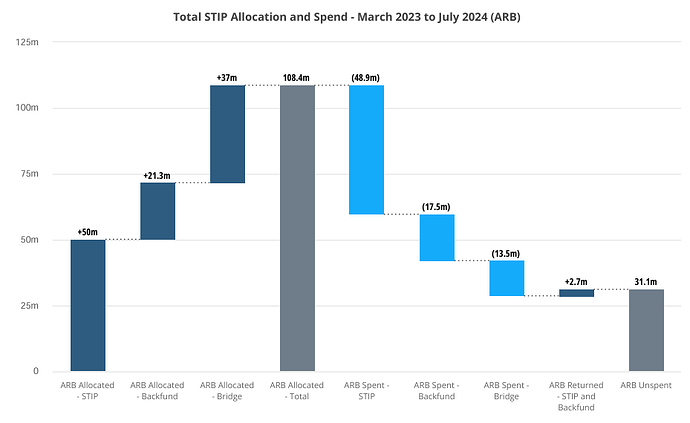The following reflects the views of L2BEAT’s governance team, composed of @krst and @Sinkas, and it’s based on the combined research, fact-checking, and ideation of the two.
We have chosen to ABSTAIN from the on-chain vote.
We originally voted in favor of the proposal during temp-check in an attempt to not block the momentum and instead help move things forward as we’re overall supportive of programs that help the ecosystem grow and thrive.
After careful consideration we voted abstain because although we see the value in the incentive program, we felt there weren’t enough convincing arguments to vote in favor of the proposal that basically seeks to extend the STIP, without however making any structural changes based on solid data or on the lessons learned so far.
One of the free-floating arguments for the need to run incentives programs, even if imperfect, is that the “war of L2s” for both mind and market-share makes it difficult to stop and assess as that would necessarily also mean falling behind. However, we haven’t seen any concrete examples of that being the case. We’re not questioning this argument as such, but we believe that at this point, after three different incentive programs already voted in, we should have a better understanding of what exactly we are fighting against.
During the temp-check both us and other delegates raised concerns around the lack of data on the efficacy of STIP/Backfund/LTIPP. We believe that those concerns haven’t been adequately addressed yet. Although the proposal suggests that performance audits will take place, we haven’t seen the results of these audits anywhere. The ARDC is working on a review of the STIP, but it’s not yet complete so we cannot use it to inform our decision. We’re also not sure if both of the aforementioned data sources will be complete by the time the challenge period ends to inform us on the need to potentially challenge protocols’ requests.
As it stands, there simply isn’t enough actionable information to evaluate, let alone justify, an extension of the STIP. Therefore, we cannot in good conscience vote in the proposal’s favor at this time.
As the DAO Advocate for the ARDC, but also in our capacity as delegates, we will follow up with a deep dive on the data from the STIP which can help all of us understand whether protocols are meeting the expectations set forward by both the program itself, and also by their applications.
To conclude, we wish that we don’t, as a DAO, have to vote for another similar proposal to extend an existing program and funnel more money into it without properly evaluating its performance and, if needed, making the appropriate changes. We plan on getting engaged in the near future into a final, long term incentive program framework, that will address all those concerns.




